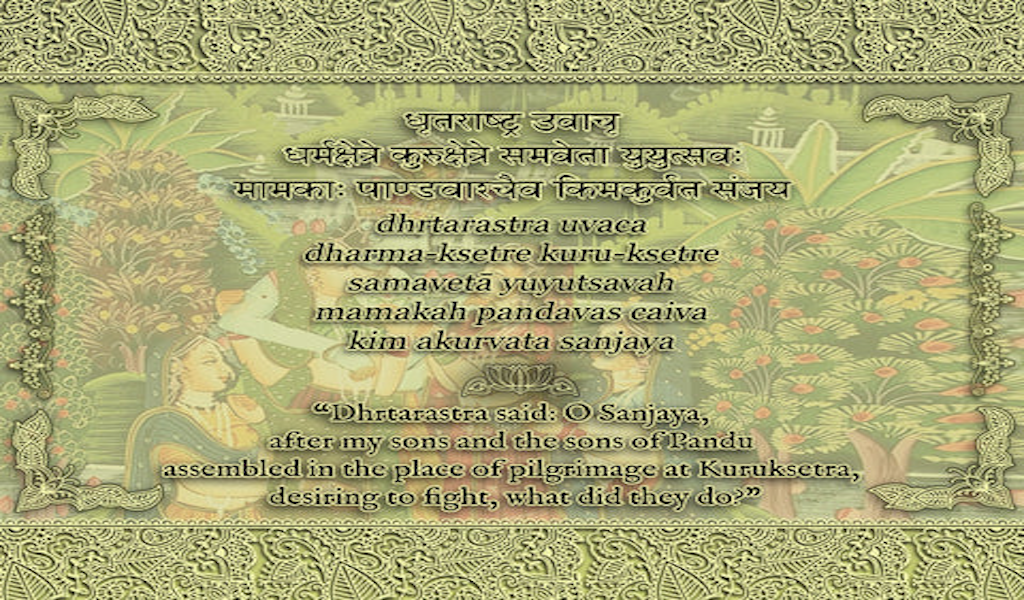Bhagavad Gita 1.1
dhṛtarāṣṭra uvāca dharma-kṣetre kuru-kṣetre samavetā yuyutsavaḥ māmakāḥ pāṇḍavāś caiva kim akurvata sañjaya
“Dhṛtarāṣṭra said: O Sañjaya, after my sons and the sons of Pāṇḍu assembled in the place of pilgrimage at Kurukṣetra, desiring to fight, what did they do?” In the Bhagavad Gita, one will find all that is contained in other scriptures as well as things that are not found elsewhere. It is the perfect theistic science because it is directly spoken by Lord Krishna. The topics discussed in Bhagavad Gita 1.1 by Dhrtarashtra, a blind king, and his charioteer Sanjaya form the basic principle for this great philosophy that evolved on the battlefield of Kurukshetra in India around 5,000 years ago. It is on this battlefield –a place of worship even for heavenly beings—that Lord Krishna was present at the side of Arjuna, a royal Pandu warrior who had to fight against those who sided with Dhrtarashtra, the father of the Kurus and Arjuna’s own uncle. Sanjaya had the gift to see what happened on the battlefield, though he was in the palace and out of the war’s sight, and described the events to the king. Dhrtarashtra asked, “what did they do?” This is significant because he did not want a compromise between the cousins and brothers who were fighting the war, and wanted to be sure of the fate of his sons on the battlefield. Dhrtarashtra knew that the location of the war, a holy place, would favor Arjuna’s side as they were virtuous by nature.
The Bhagavad Gita means “song of the Lord” and is a Hindu scripture made up of 700 verses in Sanskrit, which is a part of the Mahabharata epic. The Gita is the narration of a dialogue between Arjuna, a royal warrior, and Lord Krishna, who took the role of his charioteer and guide on a battlefield. This scripture teaches the great truths of dharma, knowledge, devotional service, raja yoga, and the Sankhya philosophy. Each of the 24 fragrances of Prabhuji’s Gifts Devotion Stick Incense line displays a verse in Sanskrit, with most coming from the Bhagavad Gita. The verse above is on the Hari package. Buy Hari Incense- Amber and Sandalwood








0 comments